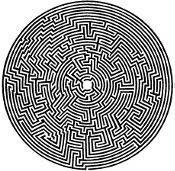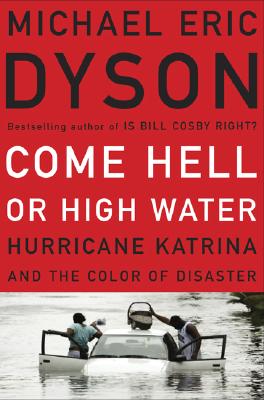American Book Award Winners of African Descent
← Back to Main Awards Page
First presented in 1980, by the Before Columbus Foundation, “the American Book Awards Program respects and honors excellence in American literature without restriction or bias with regard to race, sex, creed, cultural origin, size of press or ad budget, or even genre. There would be no requirements, restrictions, limitations, or second places. There would be no categories. The winners would not selected by any set quota for diversity, because diversity happens naturally. Finally, there would be no losers, only winners. The only criteria would be outstanding contribution to American literature in the opinion of the judges.”
Here we present the American Book Award recipients of African descent.
1 Books Honored in 2007
Nonfiction
Come Hell or High Water: Hurricane Katrina and the Color of Disaster
List Price: $23.00
Basic Civitas Books (Jan 23, 2006)
Nonfiction, Hardcover, 272 pages
ISBN: 9780465017614Publisher: Perseus Books
Book Description:
When Hurricane Katrina tore through New Orleans and the Gulf Coast, hundreds of thousands were left behind to suffer the ravages of destruction, disease, and even death. The majority of these people were black; nearly all were poor. The Federal governments slow response to local appeals for help is by now notorious. Yet despite the cries of outrage that have mounted since the levees broke, we have failed to confront the disasters true lesson: to be poor, or black, in todays ownership society, is to be left behind. Displaying the intellectual rigor, political passion, and personal empathy that have won him acclaim and fans all across the color line, Michael Eric Dyson offers a searing assessment of the meaning of Hurricane Katrina. Combining interviews with survivors of the disaster with his deep knowledge of black migrations and government policy over decades, Dyson provides the historical context that has been sorely missing from public conversation. He explores the legacy of black suffering in America since slavery and ties its psychic scars to todays crisis. And, finally, his critique of the way black people are framed in the national consciousness will shock and surprise even the most politically savvy reader. With this clarion call Dyson warns us that we can only find redemption as a society if we acknowledge that Katrina was more than an engineering or emergency response failure. From the TV newsroom to the Capitol Building to the backyard, we must change the way we relate to the black and the poor among us. Whats at stake is no less than the future of democracy.
When Hurricane Katrina tore through New Orleans and the Gulf Coast, hundreds of thousands were left behind to suffer the ravages of destruction, disease, and even death. The majority of these people were black; nearly all were poor. The Federal governments slow response to local appeals for help is by now notorious. Yet despite the cries of outrage that have mounted since the levees broke, we have failed to confront the disasters true lesson: to be poor, or black, in todays ownership society, is to be left behind. Displaying the intellectual rigor, political passion, and personal empathy that have won him acclaim and fans all across the color line, Michael Eric Dyson offers a searing assessment of the meaning of Hurricane Katrina. Combining interviews with survivors of the disaster with his deep knowledge of black migrations and government policy over decades, Dyson provides the historical context that has been sorely missing from public conversation. He explores the legacy of black suffering in America since slavery and ties its psychic scars to todays crisis. And, finally, his critique of the way black people are framed in the national consciousness will shock and surprise even the most politically savvy reader. With this clarion call Dyson warns us that we can only find redemption as a society if we acknowledge that Katrina was more than an engineering or emergency response failure. From the TV newsroom to the Capitol Building to the backyard, we must change the way we relate to the black and the poor among us. Whats at stake is no less than the future of democracy.

